'Screwdriver': The secret British plan to abandon Bosnia as Srebrenica fell
The British government drew up plans for its soldiers to abandon a besieged Muslim enclave at the height of the Bosnian war in July 1995 despite being aware of mass killings being carried out by Bosnian Serb forces.
Some 8,300 men and boys were later found to have been murdered at Srebrenica, another haven, after Dutch soldiers who were part of a United Nations peacekeeping force deployed in Bosnia had withdrawn from the town.
More than a quarter of a century on, the killings at Srebrenica, for which Bosnian Serb leaders were later convicted of genocide, remain the single worst atrocity conducted on European soil since the end of the Second World War.
Now a new Bosnian film widely praised by critics looks set to shine the spotlight on Srebrenica - and the disastrous failure of the UN peacekeeping mission in the region as Yugoslavia collapsed into civil war and ethnic violence - once again.
Directed by Jasmila Zbanic, a survivor of the near-four-year siege of Sarajevo by Bosnian Serb forces, Quo Vadis, Aida? is nominated as best international feature film at the 2021 Oscars, and has also been nominated as best foreign language film at the UK’s BAFTA awards.
But declassified British government documents examined in depth by Middle East Eye reveal just how close another Muslim enclave at Gorazde, where British soldiers made up the main contingent of peacekeepers, came to facing the same fate as Srebrenica.
The papers paint a vivid behind-the-scenes picture of world leaders endeavouring to select the least-worst options from those that advisors placed before them, at a time when events were moving rapidly, the intelligence picture was frequently cloudy, and public opinion was becoming increasingly febrile in response to 24-hour media coverage of the crisis.
They show that John Major, the British prime minister, was reluctant to reinforce Gorazde in order to protect its population of more than 30,000, despite, as his private secretary put it, “the distressing scenes now daily on our television screens”.
And they reveal that the Ministry of Defence drafted emergency plans for the evacuation of British troops from the area around Gorazde in July 1995 at the exact moment that genocidal slaughter was underway at Srebrenica and a third enclave, Zepa, had come under attack.
‘Operation Screwdriver’
Gorazde, located on a strategically vital crossroads and surrounded by towering cliffs, was highly vulnerable to attack following the fall of Srebrenica and Zepa.
The three eastern towns had been declared safe havens for Muslim Bosniaks by the UN Security Council in 1993 after the surrounding territory had been captured by Belgrade-backed Bosnian Serb forces opposed to Bosnia and Herzegovina’s declaration of independence in 1992.
The Security Council resolutions that had established these enclaves gave UN peacekeepers authority to “deter” attacks, but not to “protect” or “defend” them. Force could be used only in self-defence, and the peacekeepers were few in number and lightly armed.
Gorazde had come under Bosnian Serb attack in 1994, and again in May 1995.
On 16 July 1995, with a final onslaught thought to be imminent, plans, which were codenamed Operation Screwdriver, to evacuate 350 British soldiers from the town were finalised at the Ministry of Defence in London.
The declassified papers show that the following day a letter from the ministry containing the details of Operation Screwdriver was delivered to Downing Street for approval by Major.
The full scale of the killings at Srebrenica was not clear at that time but international humanitarian organisations were raising the alarm and the international media was reporting that civilians were being murdered.
The men and the boys captured in the enclave had been separated from women and girls, who were bussed to Bosnian government-held territory.
The disclosure of the British evacuation plans has come as little surprise to men who served in the army of Bosnia and Herzegovina during the civil war.
Ferid Buljubasic, who had served as a lieutenant colonel in the Yugoslav National Army before commanding Bosnian forces in Gorazde from mid-1992 to the end of 1994, recalls the UN Protection Force (Unprofor) as being led largely by officers who did not understand the nature of the war.
In 1994, he said, Nato aircraft bombed Serb tanks that had already been destroyed.
“I would say that the role of the international community in general in Bosnia and Herzegovina was very dishonourable,” said Buljubasic.
“My general impression is that they never understood the character of war in Bosnia and Herzegovina, that they were never neutral, that they faked execution of their tasks and there is so much evidence that they were extremely inclined towards Serbs.
'I would say that the role of the international community in general in Bosnia and Herzegovina was very dishonourable'
- Ferid Buljubasic, lieutenant colonel, Yugolsav National Army
“They ignored and disregarded the government of Bosnia and Herzegovina as well as the Army of Bosnia and Herzegovina. There was politics in all that.”
Controlling all the roads in and out of Gorazde, the Bosnian Serb forces prevented the UN forces from being resupplied: the British cut back their daily rations, cooked on wooden fires and used mules to resupply their outposts.
The papers make clear that Major was determined that the UK should not be sucked into a war with Bosnian Serb forces, and that his senior military commander, Field Marshal Peter Inge, fully supported this decision.
Buljubasic said that a group of 20 soldiers from the UK’s Special Air Service regiment had been hurriedly evacuated while the enclave was under attack in April 1994.
They had been posted to the town as the “eye and ears” of Unprofor commander Michael Rose, who was himself a British general. Two were wounded, one fatally, during the Serb attack.
“When they came, they were pumped up, dressed, they had vests, all sorts of things, camouflage paint. The very moment it got troubling, they vanished,” Buljubasic said.
“As the attacks went on, and as the Chetniks [Bosnian Serb forces] were getting close to Gorazde, one night, those SAS – a helicopter came to pick them up – they took their stuff and ran away without letting anyone know, without anything. They just disappeared, they just, one night, vanished.”
Buljubasic said he is not surprised that plans had been drawn up to withdraw the UK’s peacekeeping troops had Gorazde been attacked, and has little doubt that this would have happened.
“The behaviour of the forces of Unprofor would have been identical (to the Dutch at Srebrenica), if not even more shameful.”
Chirac’s Bastille Day frustrations
The recently declassified papers also show that as more details of the mass murder at Srebrenica appeared in the media, the governments of the UK, France and the United States were unable to agree about what should be done.
The UK and France had provided the largest contingents of UN peacekeepers to Bosnia at that time, while it was clear that US military superiority – particularly air power – would be needed if any decision was taken to escalate the conflict.
Jacques Chirac, who had just been elected as French president, emerges from the British papers as being particularly anxious to use force to deter Bosnian Serb forces from mounting any further attacks on Muslim enclaves.
Roderic Lyne, Major’s private secretary, appears to have interpreted Chirac’s desire to act as being both hopelessly unrealistic and slightly histrionic.
Following a conversation with one of the president’s foreign policy advisors, Jean-David Levitte, Lyne informs Major in a hand-written note that “Levitte … said Chirac was beside himself with frustration.
“Chirac had just come back from looking at the French army’s shiny weapons in the Bastille Day parade. What on earth was the point of having soldiers and kit if you couldn’t use them to stop the horrors of Bosnia?
“Chirac felt there had to be some action we could take – between peacekeeping and war-fighting – to deter the Serbs. I explained some of the military problems of trying to be half pregnant.”
Lyne ends by warning Major: “There is no guarantee against further grandstanding or lunacy by Chirac.”
US President Bill Clinton meanwhile was expressing his frustration at the Bosnian government.
The Bosniaks were struggling to defend themselves as a consequence of a UN arms embargo whereas the Bosnian Serb forces had inherited large amounts of weaponry from the army of the former Yugoslavia.
During a telephone conversation with Major, Clinton was recorded as having said: “We could hardly blame the Dutch for leaving Srebrenica, when the Bosnians themselves had already given up the fight.
“The Bosnians made a habit of trying to make other people look bad in the press.”
Some sections of the British record of these Clinton-Major telephone conversations remain redacted, more than a quarter-century later, on national security grounds, following the declassification in 2019 of the bulk of the UK government papers on the period.
Meanwhile, the papers record how the chiefs of staff of all three nations gathered for an emergency meeting in London on the Sunday evening following the fall of Srebrenica.
The British minutes of that meeting show that the three commanders considered there to be just three realistic options: reinforcement with around 1,100 further UN peacekeepers and more air strikes; no ground reinforcement but more robust demonstrations of air power; or “No reinforcement: Gorazde takes its chances”.
The following day, with the attack on Zepa underway, Major concluded that the Bosnian Serbs would next turn on Gorazde.
From Belgrade, the British ambassador reported that the Bosnian Serb army was “on a high” after capturing Srebrenica with so little UN opposition, and was dangerously unpredictable.
Major had been advised that while Bosniak forces would fight to defend Gorazde, they would probably be overwhelmed in seven to 14 days.
However, Major told both Chirac and Clinton that he believed only diplomatic pressure should be applied in an attempt to save the enclave.
Attempting a UN reinforcement could result in “heavy loss of French and British lives” and the “humiliating” capture of hundreds of hostages.
Throughout the year, Bosnian Serb forces had repeatedly taken UN peacekeepers as hostages - many of them French - and had occasionally used them as human shields.
Several were taken in May, after General Rupert Smith, the commander of the British forces in Bosnia, called in air strikes on Serb ammunition dumps.
The hostages had included 33 soldiers from the Royal Welch Fusiliers, the British Army regiment stationed in Gorazde along with small contingents of Ukrainian and Norwegian peacekeepers.
News footage showing UN peacekeepers chained to bridges had been seen by viewers across the world.
At the end of the month, Bosnian Serb forces had started to order the British peacekeepers to leave their observation posts around the town, and had taken some of their armoured vehicles.
With a fresh Serb attack expected, many of the Welch Fusiliers had moved into woodland, several hours trek from the town.
It was from a nearby clearing that they were to have been evacuated, with the Bosnian Muslim troops hoping that if this happened, they would leave their heavy weapons behind.
Before long, up to 500 shells were landing in Gorazde each day. The Fusiliers’ commanding officer, Lt Col Jonathon Riley, ordered that his men should use only Welsh while talking over their radios.
‘A high-risk game of poker’
The morning after his meeting with his opposite numbers, Admiral Jacques Lanxade of France and General John Shalikashvili of the US, Field Marshal Inge reported back to Major.
“The meeting proved difficult and, at times tense,” Inge began.
While Paris was anxious to defend Gorazde, if the enclave fell the French might decide to quit Bosnia altogether, Inge said.
The French wanted British reassurances that if they fell back to the Bosnian capital, Sarajevo, the British would join them in the city with further troops.
Behind the scenes, the UK and the United States also disagreed sharply over how to approach the war in Bosnia.
Major believed that any attempt to lift the UN arms embargo would lead to the Serbs and Croats, who were also fighting for territory, quickly carving up Bosnia, before the Bosniaks could acquire any of the heavy weapons they desperately needed, and put British troops at risk.
With many in Washington pushing for the embargo to be lifted, Major later wrote in his memoirs that “policy disagreements over how to handle Bosnia were to widen into the most serious Anglo-American disagreement since the Suez Crisis over thirty years before”.
The Americans regarded Gorazde as a problem for the UK and France to decide upon, and saw the defence of Sarajevo as a more serious strategic objective.
Inge, meanwhile believed that the French were still not facing up to the military realities “in what is becoming an increasingly high-risk game of poker”; and the Americans, he wrote, appeared willing to follow “a Gallic cue”.
The field marshal recommended that if the UK government decided its troops should remain in Gorazde, that “we do so as robustly as possible under a pure peacekeeping and humanitarian mandate option, and then seek a negotiated withdrawal with dignity as the Dutch have done but being prepared to use air power”.
Inge made clear that he had attempted to steer the French and the US towards objectives that were set out by Downing Street in a memo sent to him the day before the chiefs of staff meeting.
The papers suggest that his description of the Dutch withdrawal from Gorazde as having been performed “with dignity” may also have been calibrated with Downing Street’s position.
A few days earlier, a furious Chirac had publicly denounced what he described as the “cowardice” of the 700 Dutch troops who had abandoned Srebrenica.
Knowing that plans were being drawn up for the evacuation of British peacekeepers from Gorazde, Major called the Dutch Prime Minister Wim Kok to tell him he had been “outraged” by Chirac’s comments.
Major said he had just spoken to Clinton, “who had been similarly incensed.”
The UK Foreign Secretary Malcolm Rifkind followed up with a telegram to Kok: “The United Kingdom considers that the Dutch peacekeepers in Srebrenica did their duty magnificently and with great courage. The Netherlands can be proud of them.”
The relationship between Chirac and Kok was already strained. Major would recall in his memoirs that a few weeks earlier, at a dinner in Paris, Chirac had denounced Kok as presiding over a “narco-state”, and complained that drugs from Amsterdam were undermining the youth of France.
Relations between London and Paris were also frayed: earlier in the summer, the UK began to suspect Paris had done a deal with the Serbs, offering to suspend air strikes in return for the release of French hostages.
From New York, the UK’s permanent representative to the UN, David Hannay, reported that Kofi Annan, at that time the UN official responsible for peacekeeping operations, was “deeply irritated at French posturing”.
Summarising the UK’s dilemma, another of Major’s private secretaries, Edward Oakden, wrote that he had a choice: “Either we take the view that this is a defining moment, and that the national honour, our wider standing in the world and our moral duty is to set aside our military hesitations, follow through what we believe to be right and accept the probable British casualties as the necessary price for stopping the undeniable evil of Bosnian Serb behaviour in the enclaves.
“This is the basis upon which the Falklands operation was launched.”
This would mean declaring war, and that would require US ground troops “in serious numbers”.
Or the UK must “hold the position that we are not prepared to change the UN mandate and go to war with the Serbs”.
If Major decided on the latter course, the UK should avoid being identified as the country responsible for the defeat of Muslim Bosnia because of the “implications for our trading position etc in the Arab world”.
The declassified papers show that somebody in Downing Street – quite possibly Major – marked this last paragraph with two ticks.
Major was also advised that they needed to move quickly “but preserve your holiday”. One tick was drawn alongside this line.
In Gorazde, Bosnian Muslim troops began raiding a camp occupied by Ukrainian peacekeepers and stole their weapons, body armour, radios and medical equipment.
Marked 'secret'
It was against this background that the plan for the evacuation of British peacekeepers from Gorazde was finalised.
Marked “secret” and for UK eyes only, the Operation Screwdriver plan called for 1,500 frontline and support personnel, a fleet of 30 helicopters, 14 attack bombers, and the use of an Italian airbase.
'Not at all an easy option: cock-up factor clearly present'
- note from John Major on Operation Screwdriver
Field Marshal Inge had spoken to his Italian opposite number, who had promised to secure his government’s formal approval.
“We would hope the pickup in Gorazde itself would last no more than ten to fifteen minutes.”
It would not be mounted before the Bosnian Serbs had attacked the enclave, and only once the UK forces had begun to suffer casualties: the British government did not wish to be seen to abandon the enclave and its population without a shot being fired.
It would also require the go-ahead of the UN’s military commanders in Bosnia.
While all the Operation Screwdriver forces had already been placed on stand-by, it would take up to eight days to move them to Italy, and to then mount the evacuation.
In a hand-written note on the covering letter that accompanied Major’s copy of the plan, Oakden said he viewed it as “cautious, even by military standards”, although he added that “the operation obviously carries a relatively high element of risk”.
Major was sceptical, however, annotating his copy of the plan: “Not at all an easy option: cock-up factor clearly present.”
What is not recorded in the declassified papers is that at one point at the height of the crisis over Gorazde, Major telephoned Riley at his command post in the town and asked him whether he believed the Bosnian Serbs intended to capture the town.
“Of course the Serbs intend to take the town,” Riley replied.
‘NATO’s failure lay in London’
In the event, the renewed Bosnian Serb attack on Gorazde never came, and Operation Screwdriver did not need to be implemented.
A relieved Riley later wrote that “it is very hard to convey the nature of operations there, and it is all but impossible for those who were not there really to understand what life was like”.
At the end of the month, following an international conference on Bosnia in London, Nato government ministers agreed that any attack on the enclave should be met with targeted air strikes – which had always been Clinton’s preferred option.
Major noted in his memoirs that by the end of the conference, “the US had dropped their insistence on generalised bombing and the French had set to one side some fairly hair-raising plans for the recapture of Srebrenica”.
The air strikes were eventually launched the following month, after Bosnian Serb forces launched a mortar attack on an open-air market in Sarajevo, killing 43 people and injuring 75.
Thousands of sorties were flown, a ceasefire was agreed, and by November a peace agreement had been struck. Tens of thousands of peacekeepers were then deployed across Bosnia, under Nato command.
Srebrenica continued to haunt the Netherlands for years: in 2002 Wim Kok resigned, along with his entire cabinet, after an official Dutch report laid much of the blame for the massacre at the door of the country’s political and military leadership, as well as the UN.
The failure to act has not similarly haunted the UK.
Robert Hunter, who was the US ambassador to Nato at the time, has said that “Britain has a huge burden of responsibility for what happened at Srebrenica”, adding that responsibility for “Nato’s failure to act lay in London”.
Douglas Hurd, who had been UK foreign secretary until a few weeks before the fall of Srebrenica, and the subsequent genocide – and who had suggested that lifting the arms embargo would create “a level killing field” - wrote later that “humility is in order for those of us who handled policy towards Bosnia”.
For his part, Major later wrote: “As a leader of one member of the international community I accept the blame that must fall on all our shoulders for the inadequacy of the outside world’s response to the crisis both then and in subsequent years.
“Yet it should be acknowledged that Britain did far more than most.”
Photo: British soldiers, all members of the Royal Welch Fusiliers regiment, who had been taken hostage by Bosnian Serb forces pictured after their release in June 1995 (Reuters)




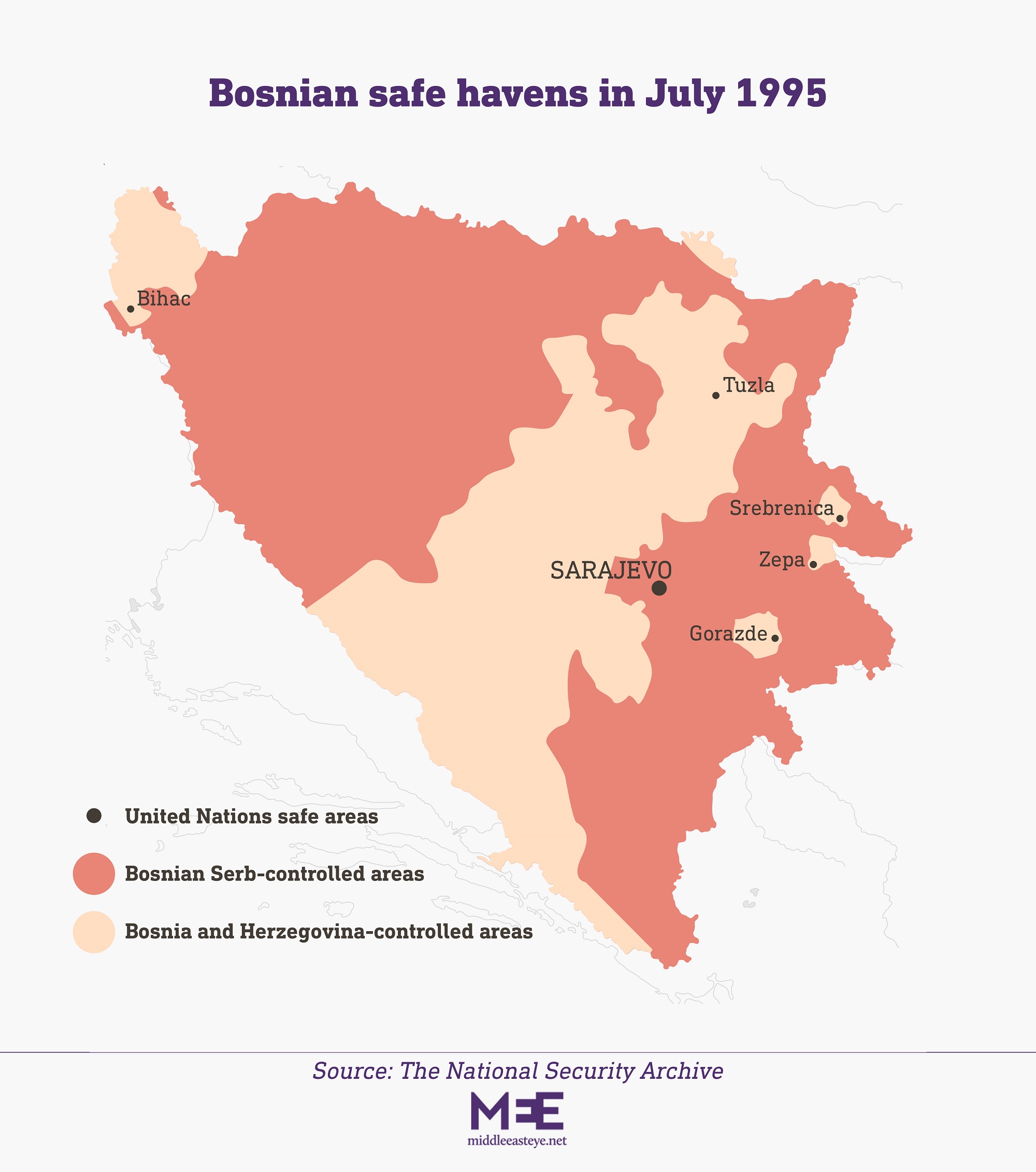
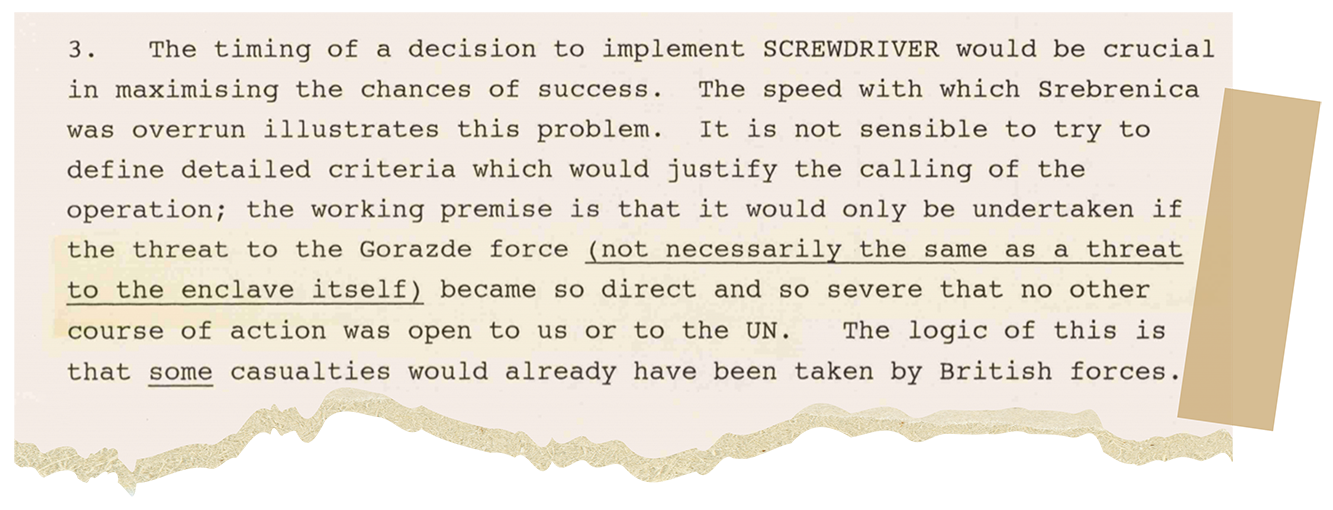
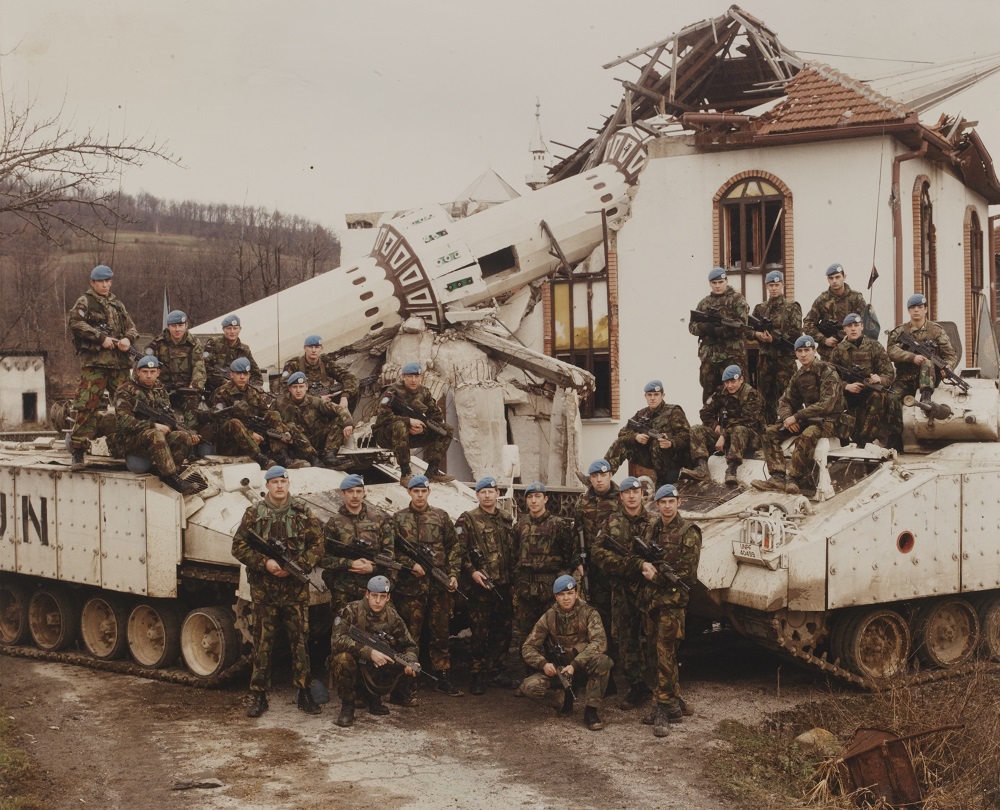
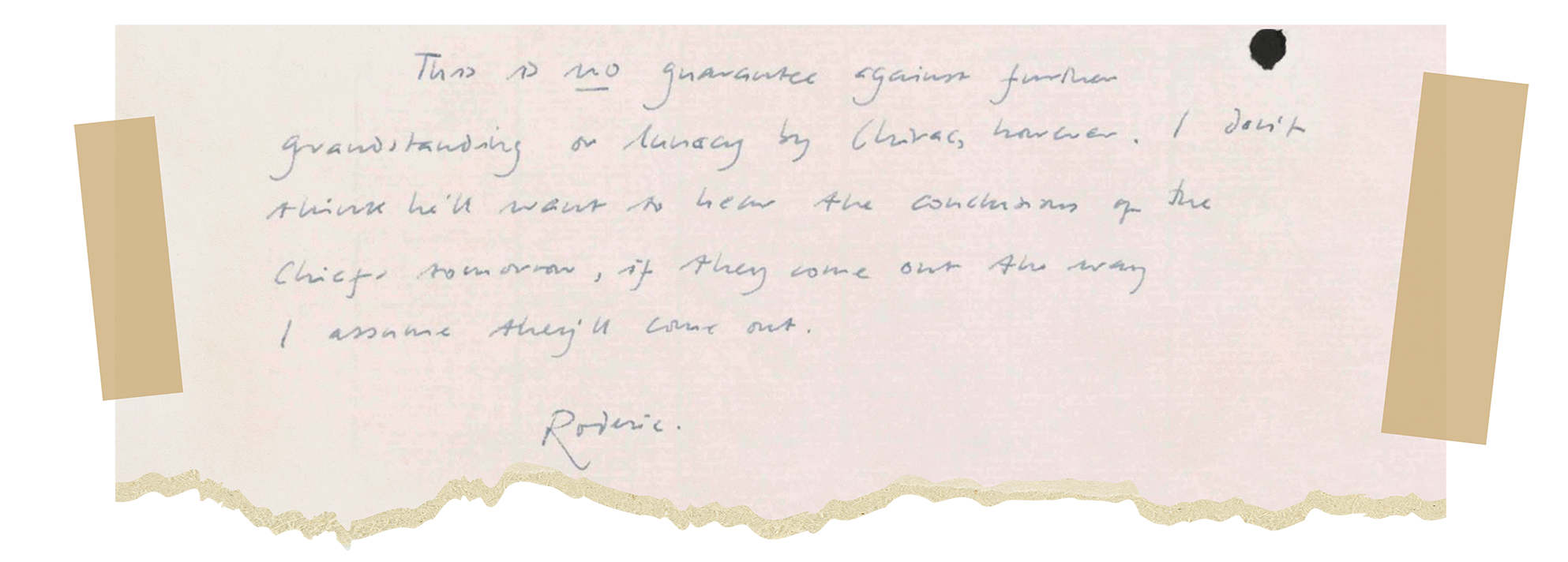
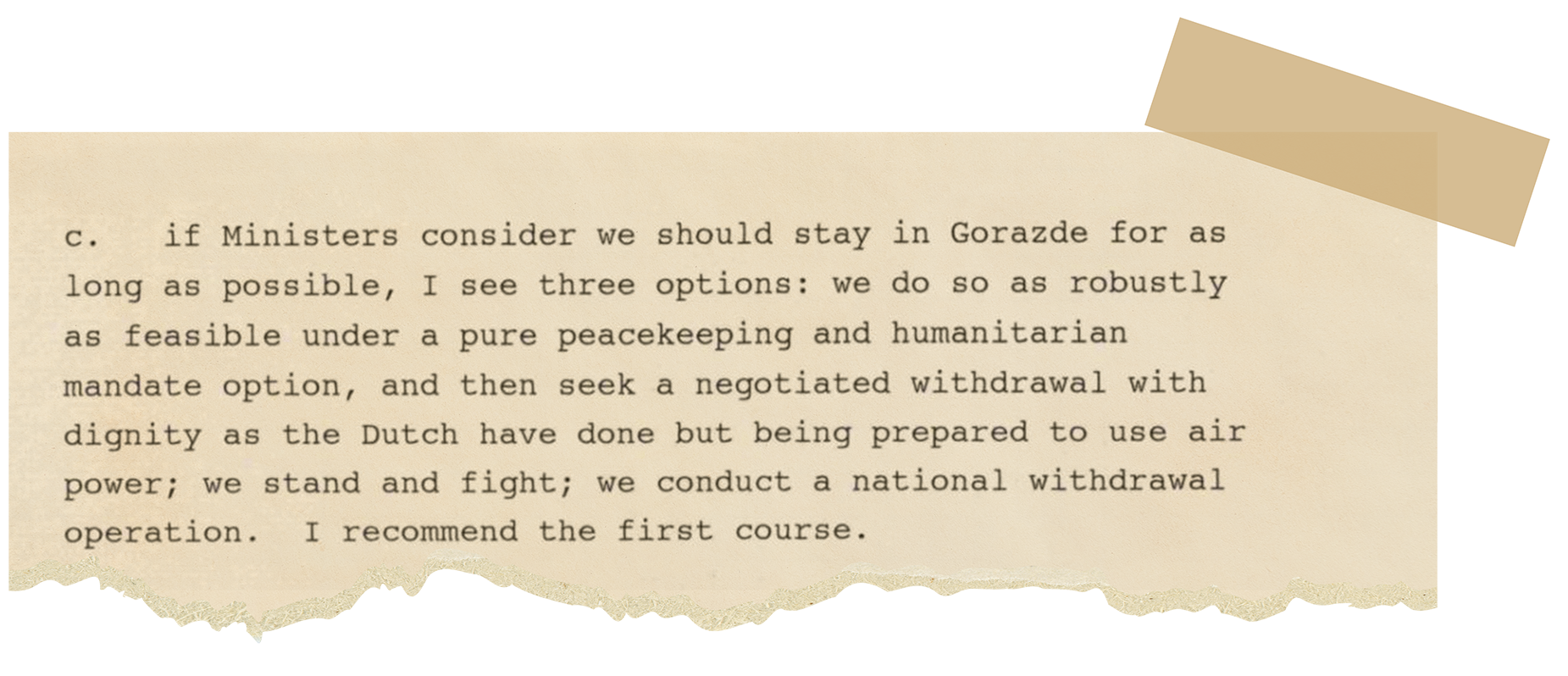
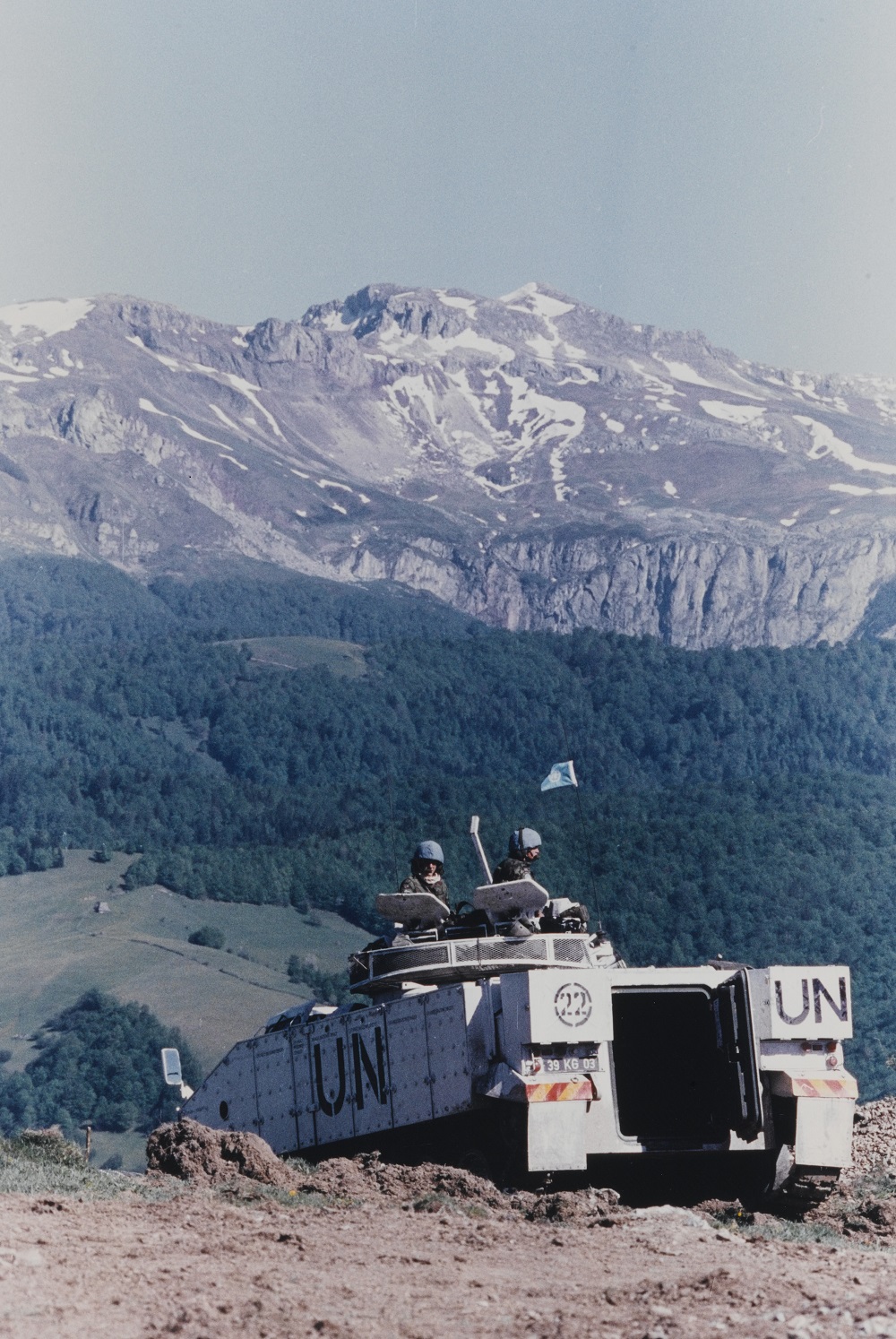


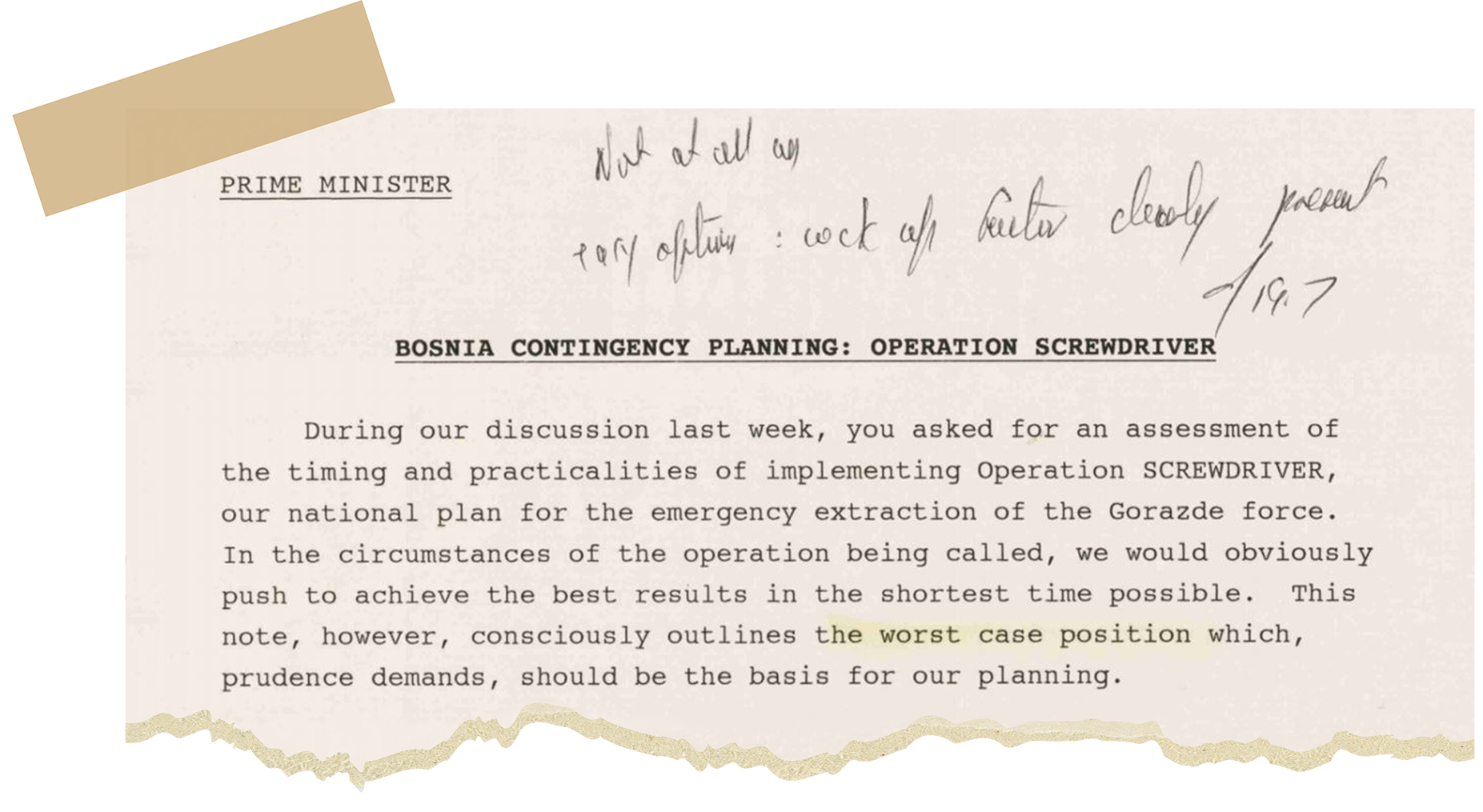
No comments:
Post a Comment
Note: only a member of this blog may post a comment.